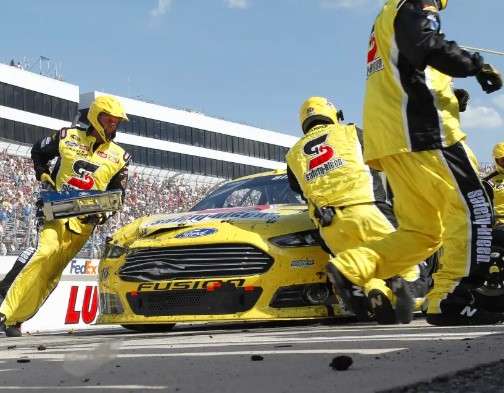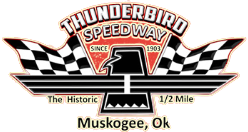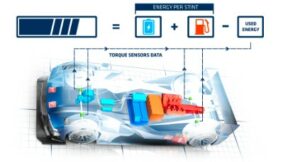
The world of racing is an exhilarating and dynamic industry, offering a wide range of career opportunities for those with a passion for speed, adrenaline, and precision. Whether you dream of becoming a professional driver, a race engineer, or a marketing executive for a motorsports team, breaking into the racing industry requires dedication, persistence, and a strategic approach. In this comprehensive guide, we’ll explore the various paths to landing a racing job, from honing your skills on the track to networking with industry professionals and leveraging your unique talents and experiences.

Understanding the Racing Industry
Before embarking on your journey to land a racing job, it’s important to familiarize yourself with the structure and dynamics of the racing industry.
Types of Racing
The racing industry encompasses a diverse array of disciplines, including stock car racing, open-wheel racing, sports car racing, and off-road racing, among others. Each type of racing has its own unique characteristics, rules, and challenges, so it’s essential to identify which niche aligns with your skills, interests, and career goals.
Key Players
From professional racing teams and manufacturers to sponsors, promoters, and governing bodies, the racing industry is made up of a wide range of stakeholders. Understanding the roles and relationships of these key players can help you navigate the industry landscape and identify potential opportunities for employment.
Building Your Skillset
To succeed in the competitive world of racing, you’ll need to develop a strong and versatile skillset that sets you apart from the competition.
Racing Skills
For aspiring drivers, honing your racing skills is essential. Whether it’s mastering the art of high-speed cornering, perfecting your braking technique, or fine-tuning your car control abilities, investing time and effort into improving your performance on the track is crucial for success.
Technical Knowledge
In addition to racing skills, having a solid understanding of the technical aspects of racing can give you a competitive edge in the job market. Familiarize yourself with concepts such as vehicle dynamics, aerodynamics, and race car engineering, as well as the latest technologies and trends shaping the racing industry.
Communication and Teamwork
Racing is a team sport, and effective communication and teamwork are essential for success both on and off the track. Develop strong interpersonal skills, learn to work collaboratively with teammates and colleagues, and cultivate the ability to communicate clearly and effectively in high-pressure situations.
Gaining Experience
Hands-on experience is invaluable in the racing industry, so seek out opportunities to get involved and build your resume.
Amateur Racing
One of the best ways to gain experience and showcase your skills as a driver is to participate in amateur racing events. Whether it’s karting, autocross, or club racing. Competing in local and regional events allows you to hone your skills, and network with other racers. It lets you attract the attention of potential sponsors and team owners.
Internships and Apprenticeships
Internships and apprenticeships with racing teams, manufacturers, or motorsports organizations can provide valuable real-world experience. Along with insights into the inner workings of the industry. Seek out opportunities to shadow professionals, assist with race day operations, and contribute to team projects. It is these experiences that help you build connections and open doors to future employment opportunities.
Networking
Networking is a powerful tool for advancing your career in the racing industry. Attend racing events, trade shows, and industry conferences to meet professionals and make connections. Join online forums and social media groups dedicated to racing, and reach out to professionals in your desired field to learn more about their experiences and career paths.
Pursuing Education and Training
While a formal education is not always required for a career in racing, pursuing additional training and education can enhance your skills and credentials.
Motorsports Programs
Many colleges and universities offer specialized degree programs or certificate courses in motorsports engineering, motorsports management, and related fields. These programs provide a comprehensive education in the technical, business, and management aspects of the racing industry. They can help you develop the skills and knowledge needed to succeed in your chosen career path.
Professional Development Courses
In addition to formal degree programs, consider taking professional development courses or workshops to enhance your skills and stay up-to-date on the latest developments in the racing industry. Look for courses offered by reputable organizations or industry associations, and choose topics that align with your career goals and interests.
Marketing Yourself
In a competitive job market, it’s important to effectively market yourself and showcase your skills, experience, and passion for racing.
Resume and Portfolio
Craft a polished resume and portfolio that highlights your racing experience, technical skills, and accomplishments. Include relevant achievements, such as race wins, awards, and certifications, as well as any relevant work experience, internships, or volunteer work.
Online Presence
Maintain a professional online presence on platforms such as LinkedIn, RacingJunk, and motorsports forums. Share updates about your racing activities, network with industry professionals, and engage in discussions related to your areas of expertise. Consider creating a personal website or blog to showcase your work and share your insights and experiences with a wider audience.
Networking and Outreach
Actively network with industry professionals and reach out to potential employers to express your interest in working in the racing industry. Attend industry events, trade shows, and career fairs to meet professionals and make connections. Follow up with contacts after networking events to keep the lines of communication open and stay on their radar.
Pursuing Your Passion
Landing a job in the racing industry requires dedication, persistence, and a willingness to go the extra mile to pursue your passion.
Volunteer and Freelance Opportunities
Consider volunteering or freelancing for racing teams, events, or publications to gain experience and make valuable connections in the industry. Offer your services as a trackside mechanic, race photographer, or social media manager to get your foot in the door and demonstrate your commitment to pursuing a career in racing.
Stay Flexible and Open-Minded
Be open to exploring different opportunities and roles within the racing industry, even if they may not align exactly with your initial career goals. Gain experience in different areas of the industry to broaden your skillset and increase your chances of finding employment.
Stay Persistent
Landing a job in the racing industry can be challenging, but don’t get discouraged. Stay persistent, keep honing your skills, and continue networking and reaching out to potential employers. With dedication and determination, you can turn your passion for racing into a fulfilling and rewarding career.
Conclusion: Racing Towards Success
The road to landing a racing job may be long and challenging. But for those with a passion for speed, adrenaline, and competition, the journey is well worth it. By honing your skills, gaining hands-on experience, pursuing education and training, and effectively marketing yourself. You can increase your chances of breaking into the exciting and dynamic world of racing. So rev up your engines, set your sights on your career goals. Prepare to embark on an exhilarating journey towards success in the racing industry.
Whether it’s working as a race engineer for a professional team. Be it landing a marketing role with a motorsports manufacturer, or pursuing a career as a professional driver. The opportunities in the racing industry are as diverse and exciting as the sport itself. With passion, perseverance, and a strategic approach, you can turn your dreams of working in racing into reality. You can join the ranks of those who live life in the fast lane.







